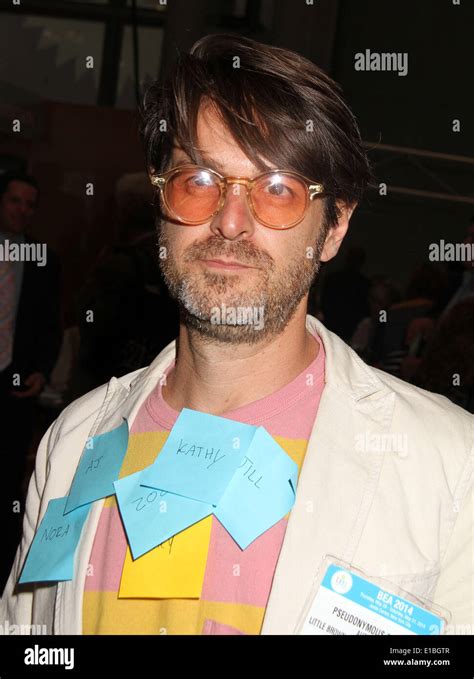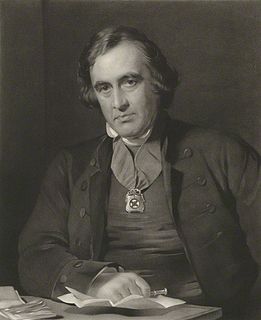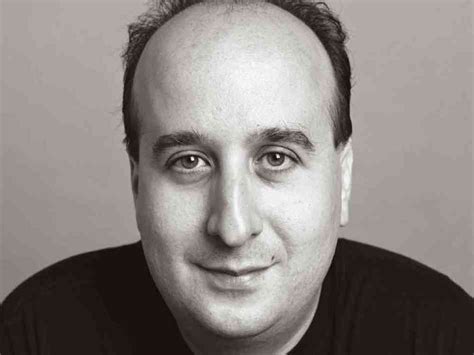A Quote by Flann O'Brien
Having placed in my mouth sufficient bread for three minutes' chewing, I withdrew my powers of sensual perception and retired into the privacy of my mind, my eyes and face assuming a vacant and preoccupied expression. I reflected on the subject of my spare-time literary activities. One Beginning and one ending for a book was a thing I did not agree with. A good book may have three openings entirely dissimilar and inter-related only in the prescience of the author, or for that matter one hundred times as many endings.
Quote Topics
Activities
Agree
Assuming
Author
Beginning
Book
Bread
Chewing
Did
Ending
Endings
Entirely
Expression
Eyes
Face
Good
Good Book
Having
Hundred
Hundred Times
Literary
Many
Matter
May
Mind
Minutes
Mouth
Of My Mind
Only
Openings
Perception
Placed
Powers
Preoccupied
Privacy
Reflected
Related
Retired
Sensual
Spare
Subject
Sufficient
Thing
Three
Time
Times
Vacant
Related Quotes
If you are interested in happy endings, you would be better off reading some other book. In this book, not only is there no happy ending, there is no happy beginning and very few happy things in the middle. This is because not very many happy things happened in the lives of the three Baudelaire youngsters.
Great nations write their autobiographies in three manuscripts the book of their deeds, the book of their words, and the book of their art. Not one of these books can be understood unless we read the two others; but of the three, the only quite trustworthy one is the last. The acts of a nation may be triumphant by its good fortune; and its words mighty by the genius of a few of its children: but its art, only by the general gifts and common sympathies of the race.
I want my books to exist in the literary world, not only in the art world. I am interested in having a dialogue with other writers, and the readers of those writers. Someone who is reading a book of mine might not have visited my exhibitions related to it, but can still have a full, literary experience with that book. This would be a completely different experience from stepping into the show, not having read the book. One form is not illustrative of the other.
Reading a book should be a conversation between you and the author. Presumably he knows more about the subject than you do; if not, you probably should not be bothering with his book. But understanding is a two-way operation; the learner has to question himself and question the teacher, once he understands what the teacher is saying. Marking a book is literally an expression of your differences or your agreements with the author. It is the highest respect you can pay him.
"The best is oftentimes the enemy of the good;" and without claiming for an instant that title of good for my book, I do not doubt that many a good book has remained unwritten, or, perhaps, being written, has remained unpublished, because there floated before the mind's eye of the author, or possible author, the ideal of a better or a best, which has put him out of all conceit with his good.
October knew, of course, that the action of turning a page, of ending a chapter or of shutting a book, did not end a tale. Having admitted that, he would also avow that happy endings were never difficult to find: "It is simply a matter," he explained to April, "of finding a sunny place in a garden, where the light is golden and the grass is soft; somewhere to rest, to stop reading, and to be content.
Hmph," said Sharon . "Did you know that the numbers three and seven are sacred to vampires? There are seven vampire sects." "Seven sacred sects," I repeated. "Say that three times fast." "How about I spank you instead?" asked Patrick in a benign tone that belied the flare of irritation in his gaze. "Only if you tie me to a bed and use a paddle." His silver eyes went molten. Uh-oh. Me and my big smart-aleck mouth. "I… uh, sorry. I didn't mean that. I saw Secretary a few too many times. I'm impressionable.







































